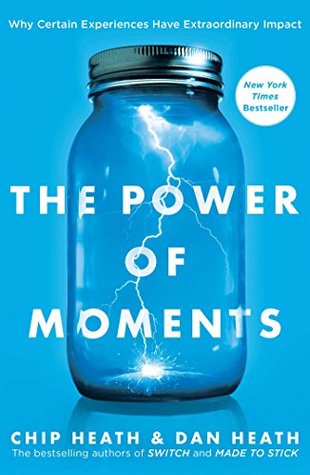More on this book
Community
Kindle Notes & Highlights
by
Chip Heath
Read between
May 7 - May 9, 2022
To maximize customer satisfaction, he said, you don’t want to be perfect. You want to get two things wrong, have the customer bring those mistakes to your attention, and then hustle like mad to fix those problems.
First, you fill the pits. That, in turn, frees you up to focus on the second stage: creating the moments that will make the experience “occasionally remarkable.” Fill pits, then build peaks.
In service businesses, there are a huge number of potholes to fix, and that’s why executives can get trapped in an endless cycle of complaint management. They’re always playing defense and never offense.
Here’s the astonishing finding from the Forrester data: If you Elevate the Positives (Plan B), you’ll earn about 9 times more revenue than if you Eliminate the Negatives (Plan A).
Beware the soul-sucking force of “reasonableness.” Otherwise you risk deflating your peaks. Speed bumps are reasonable. Mount Everest is not reasonable.
As the authors of the book Surprise put it, “We feel most comfortable when things are certain, but we feel most alive when they’re not.”
What may be counterintuitive is that self-insight rarely comes from staying in our heads.
Mentors focus on improvement: Can you push a little bit further? Can you shoulder a little more responsibility? They introduce a productive level of stress.
High standards + assurance is a powerful formula, but ultimately it’s just a statement of expectations. What great mentors do is add two more elements: direction and support. I have high expectations for you and I know you can meet them. So try this new challenge and if you fail, I’ll help you recover.
When Blakely and her brother were growing up, her father would ask them a question every week at the dinner table: “What did you guys fail at this week?” “If we had nothing to tell him, he’d be disappointed,” Blakely said.
What they share is a willingness to put themselves in a situation where they can fail. It’s always safer to stay put—you can’t stumble when you stand still.
The promise of stretching is not success, it’s learning. It’s self-insight.
First, regardless of how skilled we are, it’s usually having our skill noticed by others that sparks the moment of pride.
What’s also true is that two people chasing the same goal—and putting in the same amount of hard work—can experience different amounts of pride, depending on how they choose to structure their work.
Kamb’s insight was that, in our lives, we tend to declare goals without intervening levels.
By using Kamb’s level-up strategy, we multiply the number of motivating milestones we encounter en route to a goal. That’s a forward-looking strategy: We’re anticipating moments of pride ahead. But the opposite is also possible: to surface those milestones you’ve already met but might not have noticed.
Researcher Wiley: 80% of supervisors say they frequently express appreciation, while less than 20% of employees agree.
Recognition is characterized by a disjunction: A small investment of effort yields a huge reward for the recipient.
Here’s how it happens: One person reveals something and waits to see if the other person will share something back. The reciprocity, if it comes, is a sign of understanding, validation, and caring.
Another set of 36 questions could work just as well, so long as they matched the escalating cycle of vulnerability that Aron created. The critical realization, however, is that this cycle will not begin naturally. You must start it.
Relationships don’t deepen naturally. In the absence of action, they will stall.
In the short term, we prioritize fixing problems over making moments, and that choice usually feels like a smart trade-off. But over time, it backfires.
In life, we can work so hard to get the kinks out that we forget to put the peaks in.
When we began to read these powerful stories, we thought we were reading about epiphanies. “Eureka!” moments. But what dawned on us, as we read more of them, is that these were not stories about sudden realizations. These were stories about action.
What Kasten, Mistry, and the others experienced as the shock of an insight was actually, we came to believe, the whiplash caused by realizing they could ACT and then willfully jolting their lives in a new direction. They were not receiving a moment, they were seizing it.


